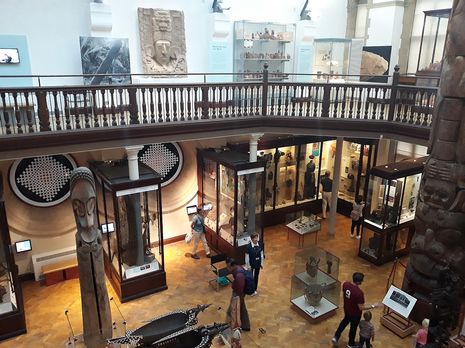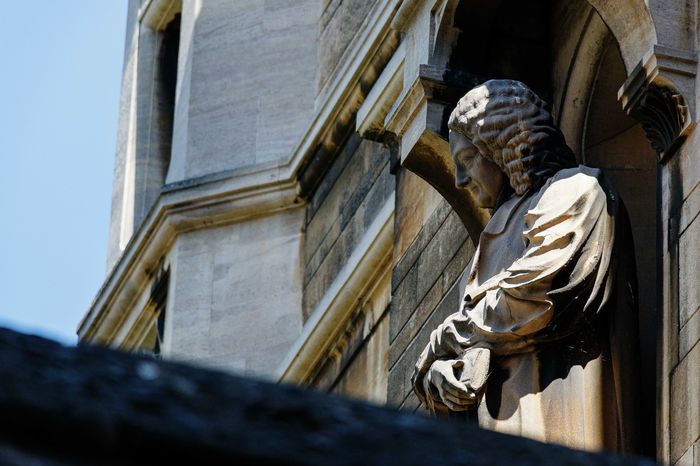Cambridge seeks permission to return Benin Bronzes
The University has decided to support a request from Nigeria’s National Commission for Museums and Monuments made this January

The University of Cambridge revealed on Friday (29/07) that it would ask the Charity Commission for permission to give back its collection of 116 Benin Bronzes to Nigeria.
The request follows a claim from Nigeria’s National Commission for Museums and Monuments (NCMM) last January, asking that the Bronzes be returned.
The Charity Commission will now decide whether to allow the University to transfer ownership of the Bronzes. The University has said they expect the Commission to consider the case by the autumn.
The Commission sanctioned the return of a bronze cockerel that previously belonged to Jesus College earlier this year, and so it is considered likely that they will accept the University's proposal.
The news follows Oxford University’s announcement that it would request permission to return its collection of 97 Bronzes, currently held in that University’s Pitt Rivers Museum.
The Universities need permission from the Charity Commission because the Commission has a mandate to consider all cases where charities want to transfer property due to a feeling of “moral obligation”.
The Bronzes - which are mostly made of brass, not bronze - are a collection of sculptures from what is today Edo State, in southern Nigeria.
The oldest Bronzes date back to the 13th century. According to the University of Cambridge, they are considered to be “of exceptional artistic quality and significance”, and “were avidly sought by museums and collectors” when they first arrived in Europe.
In 2007, one particularly valuable Bronze sold at auction for £10m.
It is the circumstances of their arrival that lies behind the Universities’ decision to support the objects’ return.
In 1896 James Robert Phillips, British Consul for the Nigeria Coast Protectorate - and an alumnus of Trinity College, Cambridge - launched an abortive mission to overthrow the Oba (king) of Benin over a trading dispute. The mission ended with Phillips and his party being ambushed and massacred.
In response, the British government launched a punitive exhibition which ended with the sacking of Benin City, and the looting of the Oba’s palace.
During this looting the British government acquired the objects now known as the Benin Bronzes. They were brought back to London and sold to help cover the costs of the expedition.
The Bronzes were thus scattered throughout Europe and the United States, where most of them have remained ever since. In recent years, however, museums have come under increasing pressure to return the artefacts, with collections across Europe agreeing to returns.
In Cambridge’s case, however, a transfer in ownership will not necessarily mean a physical repatriation.
In Friday’s announcement the University noted that Nigeria’s NCMM “has said it welcomes proposals for loan arrangements that enable artefacts to remain on display, with appropriate acknowledgement, at the Museum of Archaeology and Anthropology.”
 News / Reform candidate retracts claim of being Cambridge alum 26 January 2026
News / Reform candidate retracts claim of being Cambridge alum 26 January 2026 Interviews / Lord Leggatt on becoming a Supreme Court Justice21 January 2026
Interviews / Lord Leggatt on becoming a Supreme Court Justice21 January 2026 News / Report suggests Cambridge the hardest place to get a first in the country23 January 2026
News / Report suggests Cambridge the hardest place to get a first in the country23 January 2026 Comment / How Cambridge Made Me Lose My Faith26 January 2026
Comment / How Cambridge Made Me Lose My Faith26 January 2026 News / Cambridge psychologist to co-lead study on the impact of social media on adolescent mental health26 January 2026
News / Cambridge psychologist to co-lead study on the impact of social media on adolescent mental health26 January 2026









